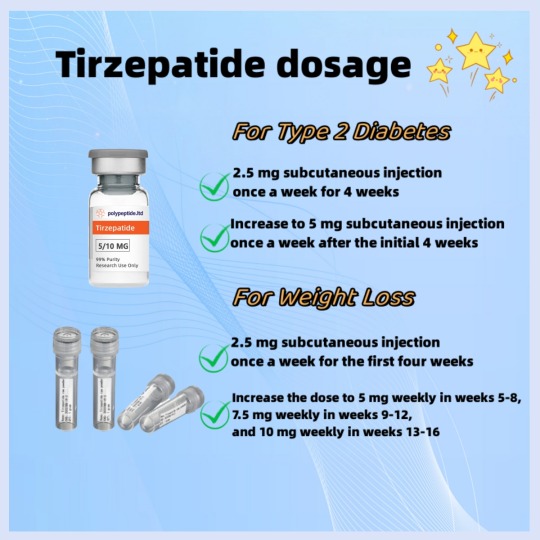#Semaglutide Benefits
Explore tagged Tumblr posts
Text
What Is Semaglutide? A Breakthrough in Weight Loss Medication
If you've been struggling to lose weight through diet and exercise alone, you're not alone. Millions of people face similar challenges. Fortunately, medical science continues to offer new options—and one of the most promising is Semaglutide.
Originally developed to manage type 2 diabetes, Semaglutide has emerged as a powerful tool for weight loss. It’s now FDA-approved for chronic weight management under brand names like Wegovy and Ozempic. But how does it work, and is it right for you?
How Semaglutide Works?
Semaglutide is a GLP-1 receptor agonist. In simple terms, it mimics a natural hormone that regulates appetite and blood sugar. By signaling your brain that you're full, it helps reduce hunger and prevents overeating. It also slows down how quickly your stomach empties, which helps you feel full longer after meals.
Unlike many weight loss methods that rely solely on willpower, Semaglutide targets the biology behind hunger and cravings—making it easier to stick to a reduced-calorie diet and see real progress.
The Benefits of Semaglutide
Clinically proven weight loss: Many patients lose 15–20% of their body weight with continued use and proper guidance.
Improved blood sugar control: Originally designed for diabetes, Semaglutide helps manage glucose levels, even in non-diabetic patients.
Weekly dosing: It’s taken as a once-weekly injection, offering convenience and consistent support.
Long-term results: With the right lifestyle changes, Semaglutide can help support sustainable weight management—not just quick fixes.
Interested in Semaglutide in Scottsdale AZ?
If you're considering Semaglutide in Scottsdale, AZ as part of your weight loss journey, consult a medical provider who specializes in physician-guided weight management. With expert support and a personalized plan, Semaglutide can help you achieve real, lasting change.
#semaglutide in Scottsdale AZ#weight loss medication#medical weight loss#Scottsdale weight loss clinic#GLP-1 weight loss#semaglutide injections#Scottsdale AZ semaglutide#Wegovy Scottsdale#Ozempic for weight loss#physician-guided weight loss#semaglutide benefits#safe weight loss solutions#personalized weight loss Scottsdale#weekly weight loss injections#non-surgical weight loss
0 notes
Text
For anyone considering a weight loss program in Texas, Semaglutide offers a powerful advantage. When combined with a healthy diet and regular physical activity, it can help you achieve sustainable, long-term weight loss results. Unlike traditional weight loss methods, Semaglutide’s unique approach to appetite suppression and fat loss sets it apart. People who incorporate Semaglutide into their lifestyle often experience consistent progress and better overall health.
0 notes
Text
In the pursuit of achieving and maintaining a healthy weight, many individuals explore various methods and treatments. One promising avenue is the use of medications like Semaglutide and Tirzepatide. At our wellness center in Indianapolis, Indiana, we believe in providing cutting-edge solutions to support your weight loss journey. These medications have shown significant potential in aiding weight loss by enhancing the body’s natural processes.
1 note
·
View note
Text
0 notes
Text
Semaglutide for weight loss - What you need to know

①.What is Semaglutide?
Semaglutide is a glucagon-like peptide-1 (GLP-1) receptor agonist that helps to regulate appetite and insulin. It works by stimulating GLP-1 receptors in the brain, which causes the body to feel full after eating smaller portions of food. It also helps reduce fat levels in the body by increasing insulin sensitivity, helping to control blood sugar levels. It is the first FDA-approved drug since 2014 for chronic weight management in overweight adults or adults with general obesity.
②.Here are five reasons to consider semaglutide for weight loss.
1.Semaglutide helps you lose weight gradually and safely.
Semaglutide works by reducing your hunger and cravings by lowering your appetite and slowing down digestion, making it easier for you to stick to a low-calorie diet. It also helps reduce the amount of fat stored in your body, leading to gradual and safe weight loss.
2. Semaglutide can help you keep the weight off.
Unlike other weight loss medications, which only work while they’re in your system, semaglutide has been shown to promote lasting weight loss by helping you stick to a healthy diet and lifestyle even after discontinuing the medication.
3.Semaglutide helps improve metabolic health.
In addition to helping you lose weight, semaglutide also reduces your risk of developing type 2 diabetes by improving your body’s ability to use insulin, as well as reducing inflammation and cholesterol levels.
4.Semaglutide is generally well-tolerated.
Most people who take semaglutide experience minimal side effects, such as nausea, headache, and constipation. The most common side effects are usually mild and can often be managed with lifestyle modifications or over-the-counter medications.
Please click to learn more.https://www.polypeptide.ltd/
#weight loss#semaglutide#peptides#health#drug blog#injection#benefits#type 2 diabetes#exercise#healthcare#insulin
7 notes
·
View notes
Text
The most complete dosage for you to learn how touse Tirzepatide

Polypeptide.ltd as a Tirzepatide supplier. We only good at producing high quality Tirzepatide powder. The Tirzepatide powder dosage and administration information provided here is for informational purposes only and should not be considered as medical advice. The dosing of tirzepatide can vary based on its intended use for type 2 diabetes and weight loss. Based on multiplestudies, here is a general tirzepatide dosage guide:
Tirzepatide dosage for Type 2 Diabetes
Tirzepatide(Mounjaro) is used as an adjunct to diet and exercise to improve glycemic control inadults with type 2 diabetes mellitus. The dosing typically follows this pattern:
❶Initial Dose: 2.5 mg subcutaneous injection once a week for 4 weeks.
❷Maintenance Dose: Increase to 5 mg subcutaneous injection once a week after the initial 4weeks.
❸Titration: If additional glycemic control is needed, the dose can be increased in 2.5 mgincrements after at least 4 weeks at the current dose.
❹Maximum Dose: The maximum recommended dose is 15 mg subcutaneous injection once aweek. Please note that the initial 2.5 mg dose is for treatment initiation and is not effective for glycemic control. You will need to adjust your dosage based on your response and needs.
Tirzepatide dosage for Weight Loss
Tirzepatide has been shown to help lose weight in overweight patients. The dosing for weight lossmay be different and can be informed by clinical trials such as SURMOUNT-1 and SURMOUNT-2. Polypeptide.ltd as Tizepatide powder manufacturer don’t teach how to use Tirzepatide. But a potential weight loss protocol could be:

❶Initial Dose: 2.5 mg subcutaneous injection once a week for the first four weeks.
❷Progressive Increase: Increase the dose to 5 mg weekly in weeks 5-8, 7.5 mg weekly in weeks9-12, and 10 mg weekly in weeks 13-16.
❸Further Adjustment: Depending on individual response and tolerance, consider increasing to 12.5 mg weekly in weeks 17-20, and up to a maximum dose of 15 mg weekly from week 21 onwards.
❹Frequency and Duration: Administer once-weekly subcutaneous injections, and studies using this protocol have lasted 24-72 weeks.
It’s essential to consult your healthcare provider before making any changes to your medication dosage. This guide is a general overview and should not replace personalized medical advice. Your healthcare provider will determine the most appropriate dosing regimen for your specific condition and needs.
#polypeptide#tirzepatide#weight loss#polypeptide.ltd#bodybuilding#retatrutide weight loss#semaglutide#tirzepatide injection#tirzepatide weight loss#Tirzepatide dosage#Tirzepatide benefits#Type 2 Diabetes#Tirzepatide(Mounjaro)#Tirzepatide Initial Dose#Tirzepatide powder#Tirzepatide lyophillized powder
2 notes
·
View notes
Text
5 Best peptides for Weight Loss

1 Best Peptide for Weight Loss: Semaglutide
Semaglutide belongs to a class of medications known as glucagon-like peptide-1 receptor agonists, or GLP-1 RAs. It mimics the GLP-1 hormone, released in the gut in response to eating. The Semaglutide injection works by slowing down how quickly food leaves your stomach and allows you to feel full for a longer period of time. By reducing hunger, lowering your appetite and increasing feelings of fullness, it will reduce your calorie intake and allow you to lose weight, 1-2 pounds a week.
2 Peptide for Weight Loss: Tirzepatide
Tirzepatide is a novel medication that is FDA approved for the treatment of type 2 diabetes mellitus. Given its potent weight loss properties, tirzepatide be used off-label for obesity treatment. It works as a dual GLP-1 agonist and GIP agonist to maximize similar benefits that are seen with GLP-1 medications such as semaglutide. It is currently implemented as a second-line diabetes medication, similar to GLP-1 medications, and given as a once-a-week subcutaneous injectable.
3 Peptide for Weight Loss: Liraglutide
Liraglutide, is an anti-diabetic medication used to treat type 2 diabetes, and chronic obesity. It is a second line therapy for diabetes following first-line therapy with metformin. Its effects on long-term health outcomes like heart disease and life expectancy are unclear. It is given by injection under the skin.
5 Peptide for Weight Loss: Retatrutide
Retatrutide is an agonist of the glucose-dependent insulin otropic polypeptide, glucagon-like peptide 1, and glucagon receptors. As can be expected, such a significant reduction in body weight in overweight and obese people also resulted in an improvement in blood pressure, cholesterol, and glucose parameters.
How do Peptides for Weight loss Work?
Most of the peptides, if not all, work via a common mechanism of action. They increase the release of Growth Hormone from the anterior pituitary gland, which leads to systemic effects. This is primarily seen in peptides used explicitly for muscle growth and endurance.
As far as weight loss peptides are concerned, it gets pretty interesting!
Some of these peptides work by increasing growth hormone levels. The growth hormone, in turn, targets specific sites like adipocytes and hepatocytes, causing raised cellular metabolism and fat burning.
Besides this, most peptides also work by rapidly increasing the process of lipolysis and simultaneously inhibiting excess lipogenesis from occurring. This leads to a net loss of fat.
A few peptides also work by regulating hormones responsible for glycemic control, like insulin and glucagon. With more insulin, glucose is transported inside the cells for energy expenditure. This subsequently aids in further weight loss.
热推
#bodybuilding#peptides#loss weight#health#benefits#Semaglutide#Tizepatide#liraglutide#retatrutide#injection#growth#energy#fat
4 notes
·
View notes
Text
tirzepatide weight loss Before and After
Tirzepatide (brand name Mounjaro) is a once-weekly injectable medication originally developed for type 2 diabetes. It has gained significant attention for its remarkable weight loss effects, and it's now being explored and prescribed for obesity under medical guidance.
How Tirzepatide Works:
Tirzepatide mimics two hormones—GLP-1 and GIP—that help regulate blood sugar, slow down digestion, and reduce appetite. This leads to lower calorie intake and enhanced fat burning.
Before Tirzepatide:
Many individuals struggle with constant hunger, cravings, and weight plateaus.
Conditions like insulin resistance, type 2 diabetes, or PCOS may make weight loss even more difficult.
Physical and emotional challenges often accompany long-term obesity or overweight conditions.
After Tirzepatide (Clinical Results):
In clinical trials, patients lost an average of:
15% to 22.5% of their body weight over 72 weeks (depending on dosage).
That’s roughly 35–52 pounds (16–24 kg) for someone starting at 230 pounds.
Weight loss typically begins within the first few weeks and continues steadily with consistent use.
Most people report reduced appetite, fewer cravings, and more control over food choices.
#polypeptide#tirzepatide#weight loss#polypeptide.ltd#bodybuilding#retatrutide weight loss#semaglutide#tirzepatide injection#tirzepatide weight loss#Tirzepatide dosage#Tirzepatide benefits#Type 2 Diabetes#Tirzepatide(Mounjaro)#Tirzepatide Initial Dose#Tirzepatide powder#Tirzepatide lyophillized powder
0 notes
Text
Early cardiovascular benefits of semaglutide seen within months in SELECT trial
Semaglutide can rapidly reduce heart attacks and other serious cardiovascular complications in adults with overweight or obesity who have pre-existing cardiovascular disease but not diabetes, according to a secondary analysis of the landmark Semaglutide and Cardiovascular Outcomes (SELECT) trial from the same international author team being presented at this year’s European Congress on Obesity…

View On WordPress
0 notes
Text
semaglutide weight loss dosage chart
When it comes to managing health conditions, understanding your treatment plan is crucial. Medications like Wegovy® and Ozempic® have gained attention for their effectiveness. But how do you ensure you’re using them safely? One helpful tool is a semaglutide weight loss dosage chart to track and manage your dosage correctly. These FDA-approved treatments are designed to support specific health…
#Dosage chart for semaglutide weight loss#Semaglutide dose for weight loss#Semaglutide weight loss benefits#Semaglutide weight loss regimen#Semaglutide weight loss results#Semaglutide weight loss treatment#Weight loss with semaglutide injection
0 notes
Text
rybelsus 3 mg price
If you're considering diabetes management options, the Rybelsus 3 mg price is an essential factor to explore. Rybelsus, an oral medication for type 2 diabetes, offers effective blood sugar control, but pricing can vary significantly. Factors such as pharmacy pricing, insurance coverage, and available discounts play a crucial role in determining the cost. By shopping around and taking advantage of savings programs, patients can find affordable options for purchasing Rybelsus online. Always consult your healthcare provider to ensure you are making the best decision for your health.
#Rybelsus#Semaglutide#Type 2 diabetes#Oral medication#Blood sugar control#GLP-1 receptor agonist#Weight management#Diabetes treatment#Once-daily dosing#Non-insulin option#HbA1c reduction#Appetite suppression#Weight loss#Metabolic health#Cardiovascular benefits#Prescription medication#Diabetes management#Glycemic control#Self-management#Healthy lifestyle#Insulin sensitivity#Diabetes support#Chronic disease management#Patient education#Dosage instructions#Side effects#Drug interactions#Rybelsus benefits#Rybelsus risks#Diabetes care
0 notes
Text

Revitalize Your Senses with Our Wellness Services in Edwardsville, IL
#IV Hydration Therapy#Myers' Cocktail IV#Hangover Relief IV#Energy Booster IV Therapy#Recovery and Performance Therapy#Medical Weight Loss#Aesthetic Treatments#Wellness Services in Edwardsville IL#Nfuze wellness#Medical Weight Loss Edwardsville#Holistic Wellness Edwardsville#IV Therapy Edwardsville#Natural Aesthetic Services#IV hydration therapy Edwardsville#Medical weight loss#Aesthetic treatments#Vitamin injections Edwardsville#IM injections for wellness#Wellness services Edwardsville#Semaglutide Weight Loss#Weight Loss Clinic Edwardsville#Health and Wellness Weight Loss#NAD+ IV therapy Edwardsville#IV hydration therapy#IV therapy for energy#NAD+ therapy for anti-aging#Wellness IV drip#IV Drips#IV Infusion Therapy#Benefits of IV Therapy
0 notes
Text
Let's Talk About GLP-1 receptor agonists (GLP1-RAs)
GLP-1 receptor agonists (GLP1-RAs), including Tirzepatide and Semaglutide, are showing promise not just in managing type 2 diabetes but also in addressing inflammatory and neurodegenerative conditions. These medications have demonstrated benefits beyond blood sugar control, such as anti-inflammatory and neuroprotective effects. Research indicates that they may potentially aid in the treatment of…
#Dementia Prevention#Diabetes Medications#GLP-1 Receptor Agonists#health#Inflammation Reduction#life lessons#metabolic health#Neurodegenerative Diseases#Neuroprotection#Science research#Self Improvement#Semaglutide Osteoarthritis#Tirzepatide Benefits#Type 2 Diabetes Treatments
0 notes
Text
Unraveling the Choices: Semaglutide vs. Other Weight Loss Approaches
In the pursuit of a healthier and more fulfilling life, embarking on a weight loss journey presents a myriad of options, each promising unique benefits and challenges. Among these choices, semaglutide emerges as a beacon of hope, harnessing scientific advancements to combat obesity. However, making an informed decision requires exploring the diverse landscape of weight loss interventions. In this article, we embark on a journey of comparison, shedding light on the nuances of semaglutide, dieting, exercise, behavioral therapy, and bariatric surgery. By highlighting the advantages and potential limitations of each approach, we aim to empower individuals to make choices that best align with their unique needs.
Semaglutide Treatment: The Revolutionary Science
Semaglutide, a remarkable GLP-1 receptor agonist, stands at the forefront of medical breakthroughs. It addresses both appetite and digestion, offering sustainable weight loss. Advantages include:
Appetite Regulation: Semaglutide effectively curbs hunger, encouraging individuals to consume fewer calories and build a healthier relationship with food.
Metabolic Harmony: By enhancing insulin sensitivity and slowing gastric emptying, semaglutide harmonizes the body's metabolic functions, promoting fat loss while preserving lean body mass.
Proven Efficacy: Clinical trials have demonstrated remarkable weight loss results, making semaglutide treatment a powerful option for individuals facing significant weight challenges.
Holistic Approach: Beyond mere medication, semaglutide fosters lasting lifestyle changes, supporting individuals on their weight loss journey.
Limitations:
Adherence and Cost: Consistent adherence to the treatment regimen and associated costs may pose challenges for some individuals.
Dieting: Nourishing the Body and Mind
Dieting has long been a popular weight loss approach, emphasizing mindful choices and balanced eating habits. Advantages include:
Customizability: Diets can be tailored to individual preferences and dietary restrictions, empowering individuals with a sense of ownership.
Educational: Embracing a diet often leads to a deeper understanding of nutrition and its impact on overall health.
Lifestyle Integration: Sustainable dietary changes may influence long-term lifestyle choices positively.
Limitations:
Sustainability: Restrictive diets can be challenging to maintain over time, potentially leading to weight regain after discontinuation.
Psychological Impact: Extreme dieting may trigger unhealthy relationships with food, causing emotional distress and potentially leading to eating disorders.
Exercise: Embracing Movement and Vitality
Physical activity is a cornerstone of weight loss, promoting a vibrant and active lifestyle. Advantages include:
Calorie Burn: Exercise expends energy, aiding weight loss through a calorie deficit.
Cardiovascular Health: Regular exercise promotes cardiovascular well-being and overall health.
Emotional Well-Being: Physical activity stimulates the release of endorphins, fostering a sense of well-being and reducing stress.
Limitations:
Time and Commitment: Finding time for regular exercise and maintaining a consistent routine can be challenging for some individuals.
Weight Loss Plateau: Weight loss journey through exercise alone may plateau over time, necessitating additional strategies.
Behavioral Therapy: Rewiring the Mind
Behavioral therapy addresses the psychological aspects of weight loss, promoting sustainable behavior change. Advantages include:
Addressing Emotional Eating: Behavioral therapy targets emotional triggers that lead to overeating, fostering healthier coping mechanisms.
Creating New Habits: Individuals learn strategies to overcome obstacles and adopt healthier lifestyle habits.
Long-Term Impact: Behavioral therapy equips individuals with tools that transcend weight loss, supporting overall well-being.
Limitations:
Individual Variability: The success of behavioral therapy can vary based on individual responses and willingness to engage in the process.
Access and Cost: Access to specialized behavioral therapy programs and associated costs may be limited.
Bariatric Surgery: Surgical Solutions
Bariatric surgery is a medical intervention aimed at reducing the stomach's size or rerouting the digestive system to promote weight loss. Advantages include:
Significant Weight Loss: Bariatric surgery can result in substantial weight loss, particularly for individuals with severe obesity.
Improvement of Weight-Related Health Conditions: Weight loss following surgery may lead to improvements in obesity-related health conditions such as type 2 diabetes and hypertension.
Long-Term Outcomes: Some types of bariatric surgery have shown favorable long-term weight loss outcomes.
Limitations:
Surgical Risks: Bariatric surgery carries inherent risks, including potential complications and side effects.
Lifestyle Changes: Post-surgery, individuals must adhere to strict dietary and lifestyle guidelines, which can be challenging.
Psychological Considerations: Candidates for bariatric surgery undergo rigorous psychological evaluations to ensure they are mentally prepared for the procedure and its aftercare.
Conclusion
In the diverse realm of weight loss interventions, each path beckons with its allure and complexities. Semaglutide shines as a scientific marvel, harmonizing appetite and metabolism to support sustainable weight loss journey. Dieting, exercise, behavioral therapy, and bariatric surgery offer unique advantages and limitations, catering to diverse aspirations and needs. Empowered with knowledge, individuals can make informed choices guided by healthcare professionals, compassion, and a commitment to embrace the approach that resonates most deeply with their journey towards a healthier, happier life.
#semaglutide#semaglutide benefits#semaglutide for weight loss#medical weight loss#semaglutide treatment
0 notes
Text
Understanding Anti-Obesity Medications: A Comprehensive Guide
Exploring the Mechanism of Anti-obesity medications: A Comprehensive Guide Understanding the mechanism of anti-obesity medications can seem like a daunting task, but it doesn’t have to be. Let’s break it down in a way that’s easy to digest, no pun intended. If you want more information about diet, please visit my website! Here Understanding Anti-Obesity Medications: A Comprehensive…
#anti-obesity medications#appetite suppressants#Bupropion-Naltrexone#effective weight loss#fat absorption inhibitors#healthcare consultation#Liraglutide#medical weight loss#medication side effects#metabolic rate increase#obesity management#Obesity Treatment#obesity-related health conditions#Orlistat#Phentermine-Topiramate#semaglutide#weight loss benefits#weight loss drugs#weight loss solutions#Weight Management
0 notes